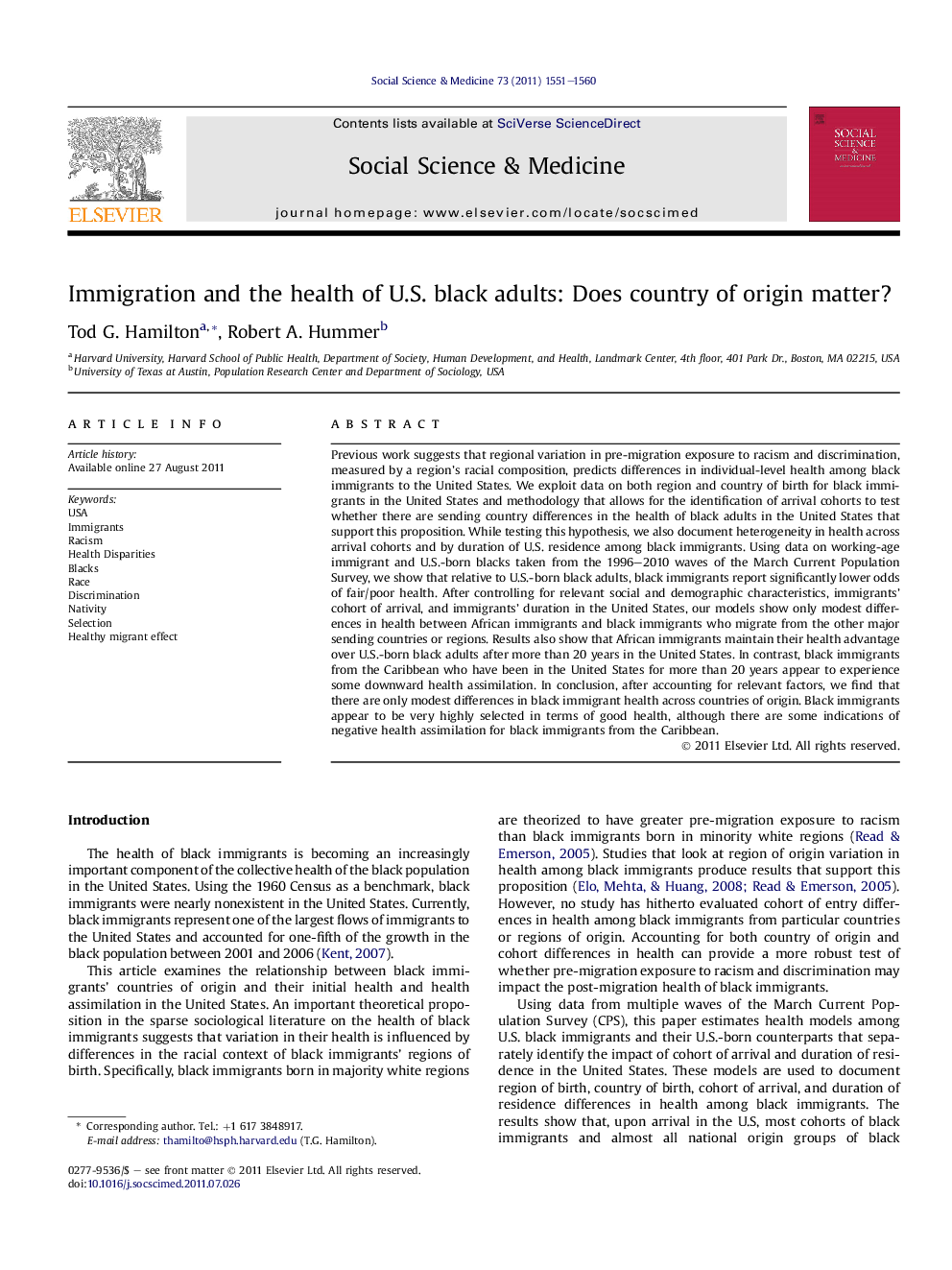| Article ID | Journal | Published Year | Pages | File Type |
|---|---|---|---|---|
| 952491 | Social Science & Medicine | 2011 | 10 Pages |
Previous work suggests that regional variation in pre-migration exposure to racism and discrimination, measured by a region's racial composition, predicts differences in individual-level health among black immigrants to the United States. We exploit data on both region and country of birth for black immigrants in the United States and methodology that allows for the identification of arrival cohorts to test whether there are sending country differences in the health of black adults in the United States that support this proposition. While testing this hypothesis, we also document heterogeneity in health across arrival cohorts and by duration of U.S. residence among black immigrants. Using data on working-age immigrant and U.S.-born blacks taken from the 1996–2010 waves of the March Current Population Survey, we show that relative to U.S.-born black adults, black immigrants report significantly lower odds of fair/poor health. After controlling for relevant social and demographic characteristics, immigrants’ cohort of arrival, and immigrants’ duration in the United States, our models show only modest differences in health between African immigrants and black immigrants who migrate from the other major sending countries or regions. Results also show that African immigrants maintain their health advantage over U.S.-born black adults after more than 20 years in the United States. In contrast, black immigrants from the Caribbean who have been in the United States for more than 20 years appear to experience some downward health assimilation. In conclusion, after accounting for relevant factors, we find that there are only modest differences in black immigrant health across countries of origin. Black immigrants appear to be very highly selected in terms of good health, although there are some indications of negative health assimilation for black immigrants from the Caribbean.
► We test a theory that suggests that pre-migration exposure to discrimination or racism explains variation in health among black immigrants in the U.S. ► We evaluate the impact of region of birth, country of birth, cohort of arrival, and duration of residence on the health of black immigrants in the U.S. ► Results imply that pre-migration exposure to discrimination or racism does not explain variation in health among black immigrants in the U.S. ► Disparities in health among black immigrants are produced by variation in health within and across immigration cohorts rather than simply across countries. ► Almost all black immigrants are healthier than U.S-born blacks upon arrival in the United States.
